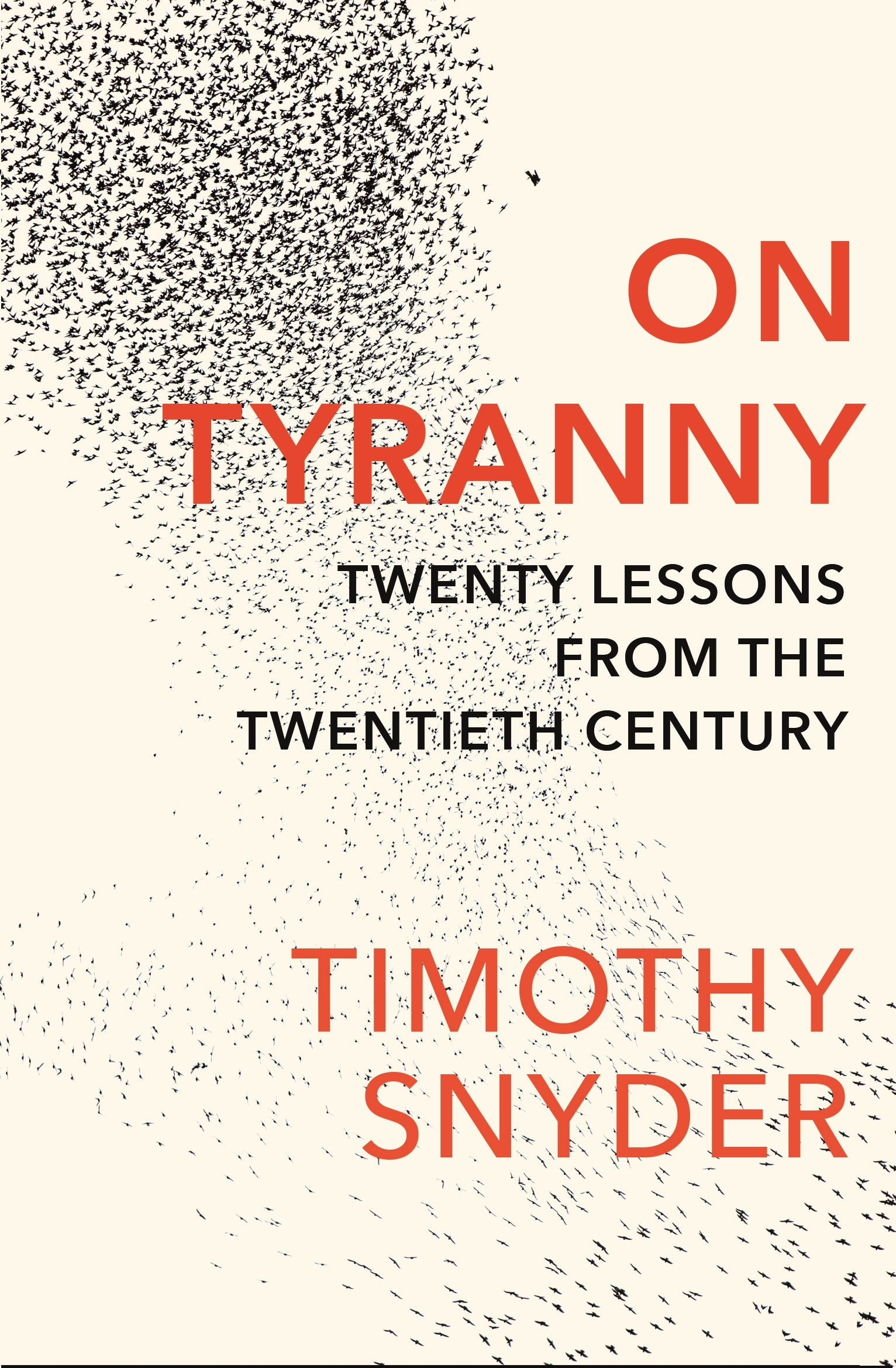


"Anticipatory obedience is a political tragedy," the author writes. Snyder recalls how, when Hitler threatened to invade Austria, regular Austrian citizens looked on, or joined in, as local Nazis detained Austrian Jews or stole their property. Much of the initial power granted to nondemocratic leaders is given freely, via "heedless acts of conformity," long before popular docility is requested or required. The author dwells on "the politics of the everyday" to show the small ways people succumb to or fend off the encroachment of tyranny. political system, he notes, was designed "to mitigate the consequences of our real imperfections, not to celebrate our imaginary perfection." "Our one advantage is that we might learn from their experience." The U.S. "Americans today are no wiser than the Europeans who saw democracy yield to fascism, Nazism, or communism in the twentieth century," he writes. Steeped in the history of interwar Germany and the horrors that followed, Snyder still writes with bracing immediacy, providing 20 plain and mostly actionable lessons on preventing, or at least forestalling, the repression of lives and minds.ĭon't count Snyder among the American-exceptionalism crowd, at least not as the concept is usually understood. "On Tyranny" is a slim book that fits alongside your pocket Constitution and feels only slightly less vital. The party that exercises such control proposes few policies that are popular with the society at large, and several that are generally unpopular-and thus must either fear democracy or weaken it.Historian Timothy Snyder does not offer a corrective to the pessimism of this genre - he is a scholar of the Holocaust, after all - but begins to illuminate a path forward from it.

We believe that we have checks and balances, but have rarely faced a situation like the present, when the less popular of the two parties controls every lever of power at the federal level, as well as the majority of state houses. The odd American idea that giving money to political campaigns is free speech means that the very rich have far more speech, and so in effect far more voting power, than other citizens. We certainly face, as did the ancient Greeks, the problem of oligarchy-ever more threatening as globalization increases differences in wealth. The logic of the system they devised was to mitigate the consequences of our real imperfections, not to celebrate our imaginary perfection. Does the history of tyranny apply to the United States? Certainly the early Americans who spoke of “eternal vigilance” would have thought so.


 0 kommentar(er)
0 kommentar(er)
